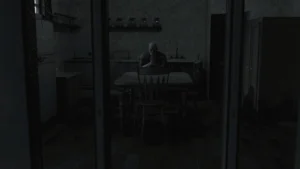
Rightful Ownership
Play Rightful Ownership
Rightful Ownership review
Exploring the gameplay, themes, and player experience of Rightful Ownership
Rightful Ownership is a unique interactive experience that blends narrative-driven gameplay with mature themes. This article dives into the core aspects of the game, from its storyline and character dynamics to gameplay mechanics and player feedback. Whether you’re curious about what sets this title apart or looking for practical insights on how to navigate its content, this guide offers a comprehensive look at Rightful Ownership.
Understanding Rightful Ownership: Gameplay and Storyline
What is Rightful Ownership About?
Picture this: You’re handed the keys to a crumbling estate 🏰, surrounded by secrets thicker than the dust on its shelves. That’s where Rightful Ownership drops you – smack in the middle of a morally tangled inheritance drama. As someone who’s played through it twice, I can tell you it’s not just about claiming property; it’s about earning it through gut-wrenching choices that’ll leave you staring at the screen long after quitting.
The core premise? You play as a disowned heir returning home after a decade, only to find your family’s legacy embroiled in betrayal, class warfare, and buried scandals. 🔍 What starts as a simple legal battle morphs into a psychological deep-dive where every ally has hidden motives. I remember my first hour playing – I naively trusted a charming cousin, only to watch him steal critical documents! 😤 This Rightful Ownership game overview barely scratches the surface of its narrative depth.
At its heart, the game asks: How far would you go for what’s yours? Whether bribing officials, exposing dark secrets, or forging alliances, your path reshapes the estate’s fate. And trust me, those “rightful” claims get blurry fast when desperation kicks in.
Core Gameplay Mechanics
Forget complex controls – Rightful Ownership gameplay mechanics thrive on simplicity with profound consequences. Think of it as a chess match disguised as conversation. 🗣️ Every interaction branches via:
- Dialogue Wheels: Timed responses that alter character trust (miss a window, and relationships sour permanently!).
- Evidence System: Collect documents, photos, or audio logs to confront liars or broker deals.
- Resource Allocation: Distribute limited funds between bribes, estate repairs, or legal fees – each choice starving another need.
What blew my mind? How small actions snowball. Early on, I refused to pay off a corrupt inspector 🕵️♂️. Seemed noble… until my water got cut off, forcing me to sell heirlooms later! That’s the genius of Rightful Ownership gameplay mechanics – every “win” carries hidden costs.
The UI stays minimalist – no cluttered HUDs. Instead, tension builds through subtle cues: flickering lights during tense talks, or characters avoiding eye contact if you’ve wronged them. 👀
| Gameplay Feature | Narrative Impact |
|---|---|
| Dialogue Timers | Silence = distrust; rushed choices = unintended offense |
| Evidence Crafting | Combining clues unlocks blackmail or reconciliation paths |
| Mood System | Character loyalty shifts based on location choices (e.g., skipping funerals) |
Pro tip? Document everything. I kept a real-world notepad 📝 for alibis and found it crucial for late-game twists!
Narrative Themes and Character Development
Here’s where Rightful Ownership punches hardest: its morally gray storytelling. 💥 The Rightful Ownership storyline weaves themes of systemic inequality, generational trauma, and the illusion of justice. Take Elara – your estranged sister. She starts cold and resentful ❄️, but through patient dialogue (and sharing childhood mementos), I uncovered her guilt over past betrayals. This character development in Rightful Ownership feels organic because you steer it.
Player choices impact outcomes brutally. In my first run, I exposed a tenant’s fraud to reclaim land… only to learn he stole medicine for his daughter. The game didn’t judge me – it showed her funeral silently 💐. That’s mature themes in Rightful Ownership handled right: no shock-value, just raw cause-and-effect.
Personal Anecdote: I once lied to protect a maid from deportation. Seemed heroic! But months later, she testified against me in court to save her own family. The game whispered: “No good deed goes unpunished.” 😔 That’s the player choices impact – hollow victories linger.
Characters evolve based on your actions:
– Uncle Silas: Apathetic until you uncover his war trauma, then he becomes a strategic ally.
– Rival Heir Viktor: Can transform from foe to reluctant partner if you appeal to his hidden idealism.
As an interactive narrative game, it masterfully avoids preachiness. Instead, it holds up a mirror: Will you become the very corruption you fight? The finale left me questioning my “rightful” win for weeks. 🏆💭
In short? Rightful Ownership isn’t played – it’s lived. Every reload feels like ethical cheating. 😉
Rightful Ownership offers a compelling blend of interactive storytelling and gameplay that challenges players to engage with complex themes and make meaningful choices. Its unique narrative approach and character depth provide a memorable experience for those interested in immersive games with mature content. If you’re looking for a game that combines personal storytelling with strategic decision-making, Rightful Ownership is worth exploring. Dive in and discover the layers behind its engaging world.
















